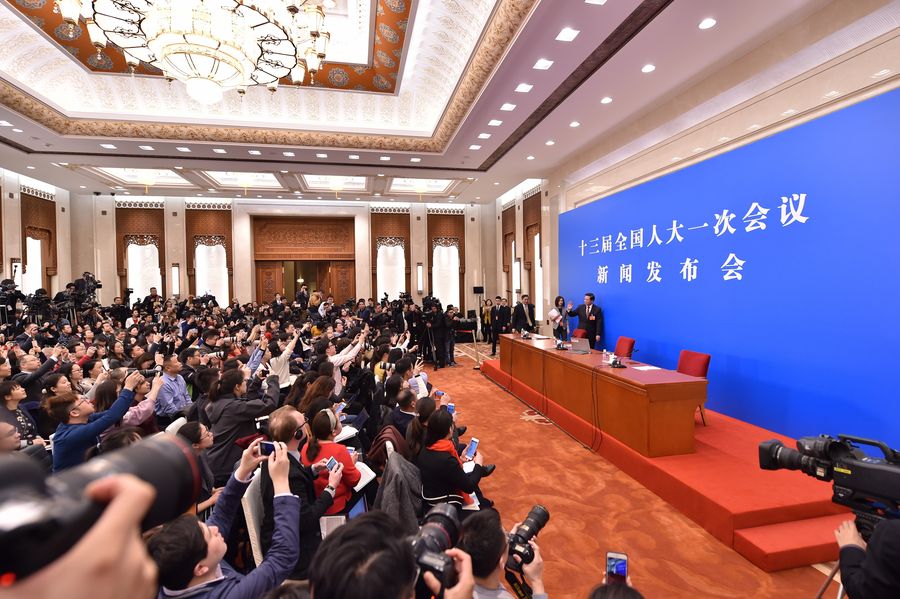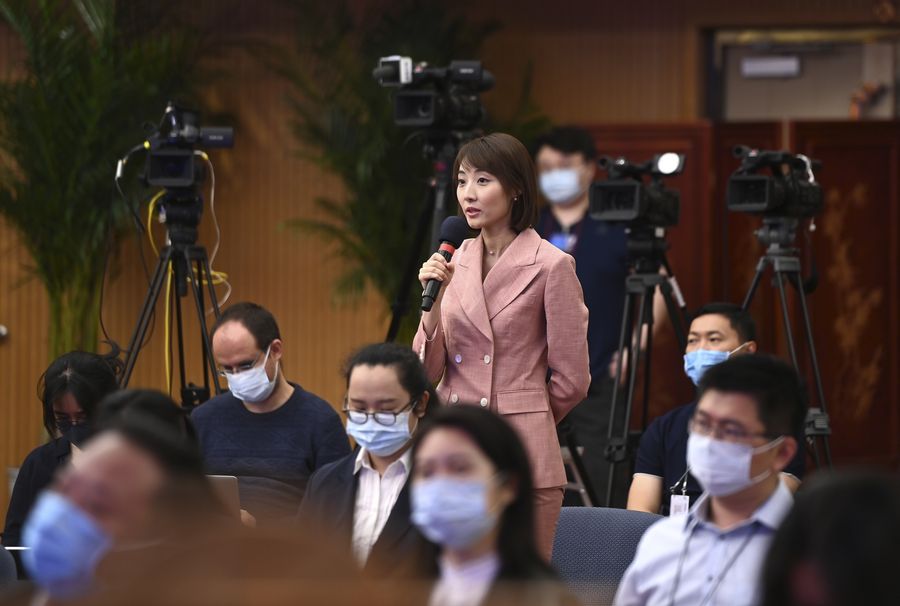China to introduce national security legislation for HKSAR
China will introduce legislation for its Hong Kong Special Administrative Region (HKSAR) to safeguard national security.
China will introduce legislation for its Hong Kong Special Administrative Region (HKSAR) to safeguard national security.

Zhang Yesui, spokesperson for the first session of the 13th National People's Congress (NPC), attends a press conference on the NPC session at the Great Hall of the People in Beijing, capital of China, March 4, 2018. [Photo/Xinhua]
According to an agenda unveiled Thursday, a bill on reviewing a draft decision on establishing and improving the legal system and enforcement mechanisms for the HKSAR to safeguard national security will be submitted for deliberation to the third session of the 13th National People's Congress (NPC), which will open on Friday.
The introduction of the bill came after Hong Kong was embroiled in prolonged riots last year as the city's opposition schemed with external forces in attempts to create a "color revolution."
The unrest has laid bare the evident legal loopholes and lack of enforcement mechanisms in Hong Kong concerning national security.
Zhang Yesui, spokesperson for the NPC session, told a press conference on the eve of the session that the legislative move is "highly necessary."
Explaining the consideration for the draft decision, Zhang said safeguarding national security serves the fundamental interests of all Chinese including Hong Kong compatriots.
"The HKSAR is an inseparable part of the People's Republic of China, and the NPC is the highest organ of state power," Zhang said.
In light of the new circumstances and need, the NPC is exercising the power enshrined in the Constitution to establish and improve at the state level the legal system and enforcement mechanisms for the HKSAR to safeguard national security, and to uphold and improve the institutional framework of "one country, two systems," he said.

A reporter asks a question during a press conference of the third session of the 13th National People's Congress (NPC) via video link in Beijing, capital of China, May 21, 2020. [Photo/Xinhua]
NPC deputies and national political advisors from the HKSAR voiced firm support for the legislative move.
Stanley Ng, president of the Hong Kong Federation of Trade Unions, said Hong Kong has "very apparent" loopholes and legal vacuum in national security.
"There is a pressing need to plug the loopholes," Ng said, adding that the draft decision shows the state has a firm resolve to safeguard national security.
Maggie Chan, a lawyer and the founding president of a law firms association in Hong Kong, said it is imperative to set up, enforce and improve the legal system and enforcement mechanisms for Hong Kong to safeguard national security so that it can better play its advantage to fully integrate into the country's development.
If such system and mechanisms can be set up, it will be of great significance to safeguarding the long-term prosperity and stability of Hong Kong and pushing "one country, two systems" to go steady and far, said national political advisors from the HKSAR.

